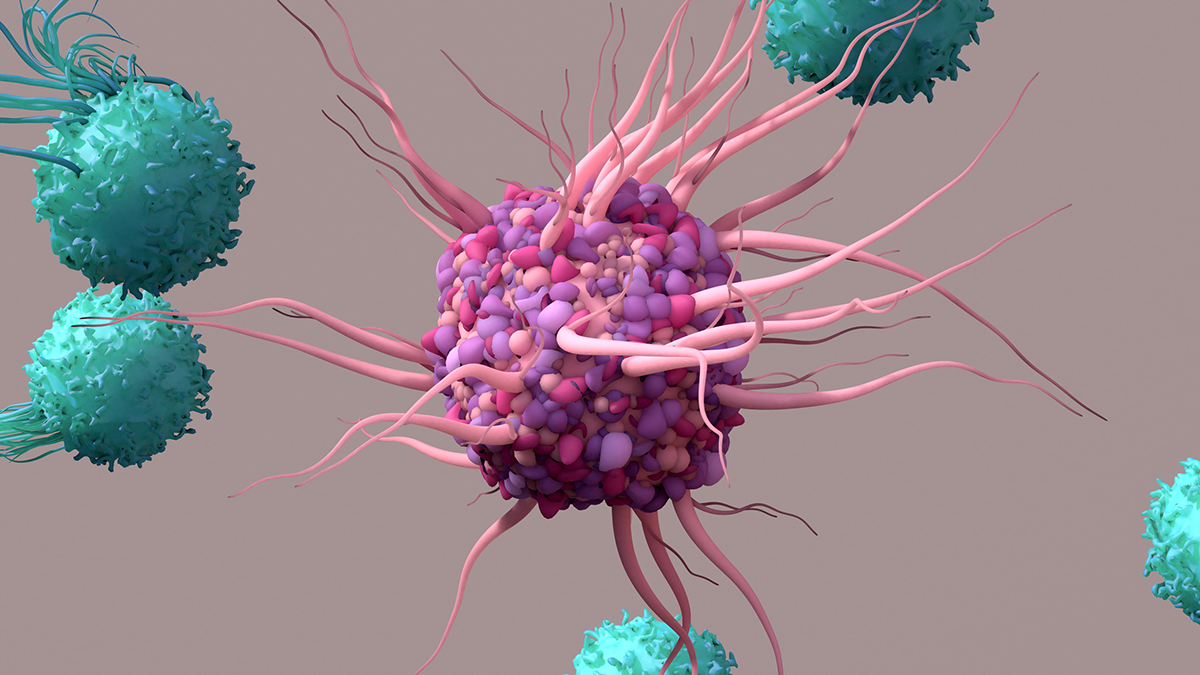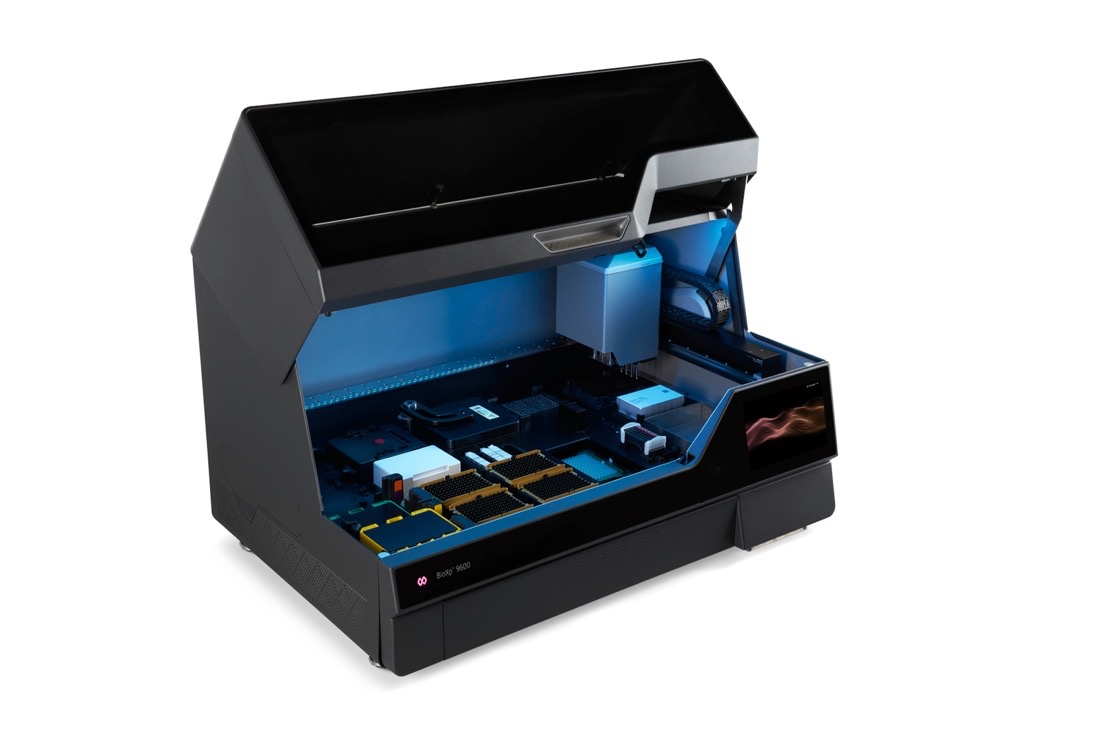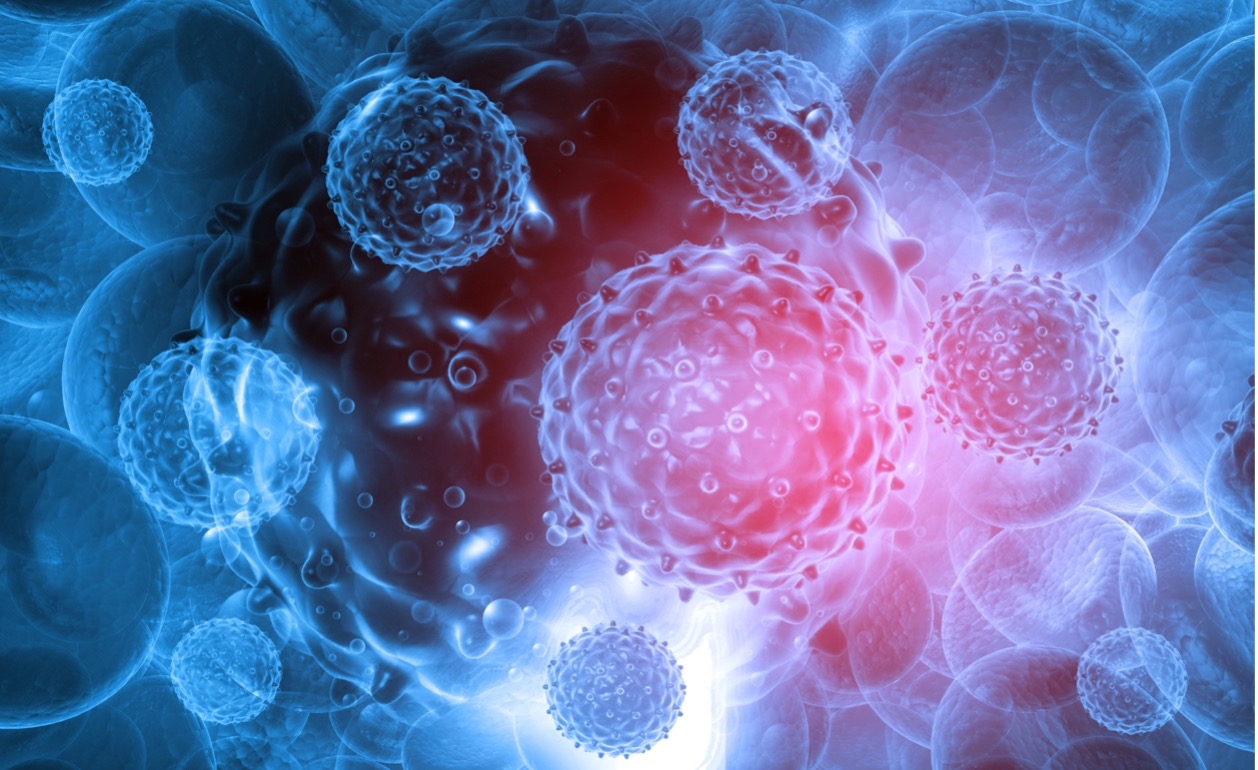
Cellular therapy research is booming with applications in cancer and further innovations on the horizon for infectious, autoimmune, and chronic inflammatory diseases. The progression in understanding the tumor microenvironment and how the immune cells infiltrate and kill tumor cells has resulted in advances in cancer immunotherapy research and treatments. Research focuses on the best targets for these therapies, as well as the engineering of cells to ensure safety and improve their efficacy, especially in difficult-to-treat areas.
Design iteration in adoptive T-cell therapy is a key challenge
Cell-based immunotherapy for cancer poses a discovery challenge, requiring researchers to balance synthetic biology complexity with the factors required for stability, manufacturing capability, immunological compatibility, and safety. Scientists need to design, build and test tens of dozens of cell receptors for tumor-associated antigen specificity and immune activation, optimize and then iterate before advancing candidates to development.
Design iteration for Chimeric Antigen Receptors (CARs) and screening T-cell receptors (TCRs) for tumor-associated antigen-specificity can be particularly challenging. The synthetic construction and assembly of CARs and TCRs and their introduction of these constructs into cells can often be the most time-consuming step in the process. High-throughput testing requires the quick assembly and integration of constructs into viral vectors for the transfection of cells used for screening assays. Traditional methods are not only time-consuming, taking several weeks to generate viral vectors for transduction, but also have limitations in quality control and are costly, limiting the number of CARs or TCRs researchers can test in a single iteration. To expedite the design-build-test cycle for CARs and TCRs, it is essential to improve and optimize this process.
Optimized discovery workflow for TCR screening and optimization
In a traditional workflow, the TCR construct is cloned, a lentiviral construct is generated, and this is then used to transduce T cell lines or primary T cells for candidate screening assays. This process generally takes up to six weeks and often involves external service providers for steps in this process. This entire process can now be sped up by weeks with an internal benchtop device able to create multiple candidate TCR mRNAs overnight for transfection and expression, reducing the time from establishing the sequence to functional testing of the TCR. While mRNA is an attractive alternative to viral transduction to generate transient, high levels of protein expression in primary T-cells/cell lines, generating mRNA quickly, efficiently, and cost-effectively has been a challenge with traditional synthesis methods. For example, you might perform a single-cell RNA sequencing analysis of specific sorted and/or expanded T cell populations to identify TCR sequences of interest. Based on this data, you can create heterodimeric TCR expression constructs in a matter of days and use these to electroporate RNA into T cell lines or primary T cells for functional screens.

Using a high-throughput automation platform for synthetic biology is a promising alternative approach that can substantially speed up the synthetic assembly processes. Genes are built based on a digital sequence, and clones, libraries, and mRNA can be created in a fraction of the time it takes using traditional methods. These methods are hands-free, and are possible using benchtop devices with a limited laboratory footprint so researchers can be more efficient and use their time on other valuable tasks. Using such a platform allows faster screening of constructs, enables rapid synthesis and testing of complex multi-domain constructs as well as broadens the scope of discovery. T-cell Receptor (TCR) therapy for cancer relies on selecting tumor-reactive T cells and assessing their TCR. Using a high-throughput in-house synthetic biology platform allows researchers to rapidly build candidate TCR constructs, enabling them to advance to candidate screening assays far quicker than traditional workflows.

A new workflow paradigm for CAR design-build-test discovery process
Beyond engineered T Cells, CAR T cell therapy has also shown tremendous potential for significant success in improving outcomes for several hematological cancers. Therapeutic applications are currently expanding to solid tumors and autoimmune and infectious diseases. In order to overcome issues with solid tumors’ immunosuppressive tumor microenvironment to find the best antigenic targets for therapy, research focuses on exploring targeting domains, improvements in the signaling domain, and other modifications to the construct, for instance, by adding sequences for cytokine production.
Additionally, innovations to develop off-the-shelf therapies using allogeneic cells may reduce costs, improve the quality of the cellular product, and make the treatment accessible to a larger group of patients. However, allogeneic cells risk graft-versus-host disease as they contain an original TCR that may be reactive to the patient’s tissues. To overcome this, CAR-T cells using allogeneic cells need to be constructed so that the endogenous TCRα gene is knocked out while the CAR transgenes are inserted via an adeno- or retroviral vector.
By being able to synthesize multiple gene fragments overnight, more CAR designs can be explored than previously possible. Construct designs can be rapidly iterated to identify the optimal characteristics for the CAR T cell. Multiple CAR or costimulatory constructs can be built simultaneously to accelerate candidate screening experiments.
Automating synthetic biology – a tool for accelerating novel cell therapy solutions
Automated synthetic biology solutions can provide solutions for both TCR-T and CAR-T, allowing researchers to accelerate the discovery phase of therapeutic development. As a developer of novel TCR-T or CAR-T therapies, your end goal might be to develop constructs targeting various antigens to assess tumor reactivity. Your process begins with selecting sequences for these constructs used to inform the construct development, after which those constructs are transduced into T cells for candidate screening experiments in vitro and in vivo. Traditional methods for the “build” part of this “design-build-test” cycle have several challenges and are not optimized to meet current development timelines.

This process is limited by the time it takes to get from a candidate sequence to a high-fidelity construct for use in screening assays. With automated synthetic construction from a digital sequence, the process can be conducted overnight, and has inherent error correction to ensure high accuracy. In addition, an in-house benchtop device performing this work for you circumvents the long turnaround times of service providers. This method allows you to have better control over your workflow timelines and broaden the scope of your experiments.
High throughput synthetic biology platforms offer fast, accurate, hands-free, end-to-end solutions to accelerate discovery workflows. These workflow solutions enable rapid candidate synthesis which in turn allow for faster screening through transient modulation of cellular phenotypes.